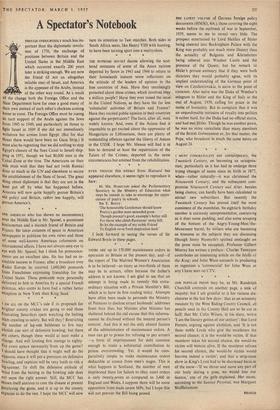THERE ARE up to 150,000 maintenance orders in operation in
Britain at the present day, and—if the report of The Married Women's Association is to be believed—as many as two-thirds of them may be in arrears, often because the father's address is not known. I am glad to see that an attempt is being made to remedy this extra- ordinary situation with a Private Member's Bill, which is to have its first reading today. Attempts have often been made to persuade the Ministry of Pensions to disclose errant husbands' addresses from their files; but Minister after Minister has sheltered behind the old excuse that this informa- cannot be disclosed without the insured person's consent. And this is not the only absurd feature of the administration of maintenance orders. A man can go to prison for refusing to pay arrears —a form of imprisonment for debt common enough to make a substantial contribution to prison overcrowding. Yet it would be com- paratively simple to make maintenance orders deductible at source from men's wages. This is what happens in Scotland; the number of men imprisoned there for failure to obey court orders is only twenty-seven as compared to 3,400 in England and Wales. I suppose there will be some opposition from trade union MPs, but I hope this Will not prevent the Bill being passed.


































 Previous page
Previous page